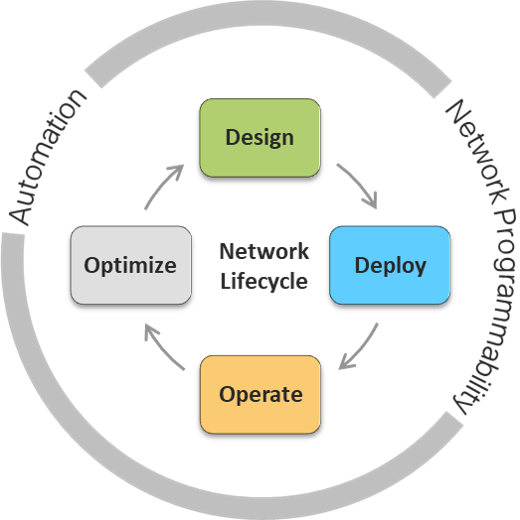What Is CCIE Collaboration V3.0?
Objective & Syllabus:
The global workplace is undergoing dramatic changes because of advanced technology and enhanced infrastructure. Business interactions or transactions between person to person or person to organizations are changing beyond imagination. Four key aspects are changing the way people work.
First and foremost, the biggest disruption is the possibility of “working from anywhere”. Remote workers are taking over the workforce in ways never seen before. Within the next two years, the percentage of remote workers in the global workforce is expected to reach 40%.
The second trend sweeping the workforce is incorporating artificial intelligence and machine learning into the collaboration industry.
The third trend is that companies cannot afford to ignore the customer experience. Collaboration solutions and services help companies maintain and improve the end-user experience, critical to their growth and success.
The fourth trend concerns managing security posture and compliance guidelines in business processes, regardless of industry and geography.
Organizations worldwide are looking for professionals who can take care of the changing dynamics of collaborative programs to meet these four trends. They are looking for skilled and certified professionals who can take care of the end-to-end of collaboration solutions and services. Cisco’s CCIE Collaboration V3.0 is a crucial step in empowering collaboration professionals to meet and exceed these expectations.
Cisco Complete VNI Forecast 2018 indicated that business mobile traffic would grow 42% per year from 2017 to 2022, which is a huge shift in the way people work, from “office” to “remote or mobile workers.” Organizations must meet the needs and requirements of these mobile workers without compromising information availability, security/compliance, and user experience.
Cisco has updated its flagship certification program to reflect rapidly changing technology needs and industry adoption patterns. The primary theme of the certification program changes is “Preparing for today, tomorrow and the future”. The reformed certification program reflects the changing needs of the market and the way Cisco is meeting them.
The CCIE Collaboration Lab Exam V2.0 is designed to test skills related to collaboration solution integration, interoperability, configuration, and troubleshooting in complex networks and video, mobility, and present challenges.
The new CCIE Collaboration Lab exam V3.0 is designed to assess and validate candidates’ skills in designing, deploying, operating, and optimizing complex collaboration technologies and solutions throughout the deployment lifecycle.
This basically means that the CCIE certification program has been overhauled based on an updated syllabus to meet the needs of the industry now and in the future, an exam methodology (lab structure) to validate skills across the network lifecycle, and a scoring system to match difficulty levels and weights.
Network Complexity of Hyperconnected Organizations
(Courtesy– Cisco Networking Trends Report 2020)

The CCIE Collaboration Lab Exam V2.0 aimed to cover the following topics:
| Protocols and APIs | |
| Infrastructure and Quality of Services | |
| Call Control and Dial plan | |
| Endpoints, User Management, and Mobility | |
| Edge Services | |
| Media Resources, Meetings, and Call Recording | |
| Collaboration Applications |
Whereas the CCIECollaboration v3 is designed to assess the following topics:
| Protocols and APIs | |
| Infrastructure and Quality of Services | |
| Call Control and Dial plan | |
| Endpoints, User Management | |
| Edge Services | |
| Media Resources and Meetings | |
| Collaboration Applications and Services |
For detailed information for CCIE Collaboration Lab exam V3.0, please visit SPOTO.
Major Differences between CCIE Collaboration V3.0 and CCIE Collaboration V2.0
Nature and scoring method of the lab exam:
In the outgoing CCIE Collaboration Lab Exam V2.0, the structure of the lab exam is as follows:
The CCIE 8-hour collaboration laboratory exam version 2.0 consists of three independent exam modules:
2 Hour – Troubleshoot Module
1 Hour – Diagnostic Module
5 Hours – ConfigurationModule
In the first module, the Troubleshoot module, candidates will be given events that are independent of each other. The topology used in this module is different from that in the configuration module. All devices and appliances used here are fully virtualized.
The length of the Diagnostics module is 60 minutes. The module focuses on the skills needed to diagnose problems in a collaborative network. It will provide Candidates with a set of documents that represent real-world situations that collaboration engineers may have to face in real-world scenarios. Candidates do not have access to actual collaboration devices and applications.
Configuration and Troubleshooting module in CCIE Collaboration Lab Exam V2.0 tests hands-on practice skills. The configuration module reflects actual production collaboration networks. In this module, candidates are exposed to virtual instances of Cisco collaboration devices and physical devices. It improves the reliability of the lab exam by concentrating on technical concepts, troubleshooting, diagnosing, and configuration skills instead of testing specific hardware platform functionality, software knowledge, and administration.
It is prohibited to go back and forth between the modules because the order of the three lab modules is fixed, and the Troubleshooting module is followed by the Diagnostics and Configuration module.
Passing Score:
Candidates must meet two conditions to pass the CCIE Collaboration Lab Exam V2.0:
1. Candidates must meet or exceed the minimum scoreline for all three modules
2. The candidate’s total score for all three modules must meet or exceed the total score for the lab exam.
If any of these criteria cannot be met, the laboratory exam will not be passed. There are cases where a candidate has met the minimum score requirement in all three modules and still fails the exam. This failure is due to failure to meet the second criterion of the total score.
This criterion is designed to ensure that the CCIE must be competent in all three areas (troubleshooting, diagnostics, and configuration). Candidates cannot ignore one module and focus on the remaining modules to pass the exam.
Nature of the Lab Exam CCIE Collaboration V3.0
The following is the lab exam for CCIE Collaboration V3.0:
The lab exam is divided into two modules with a fixed time and sequence.
Module 1 – Design (3 hours)
Module 2 – Deployment, Operation, and Optimization (5 hours)
Candidates who fail the exam will receive a report that specifies the scoring percentages domain-wise for the modules they passed or failed.
What Are the Benefits of CCIE Collaboration?
The CCIE Collaboration Lab exam and syllabus are designed to provide the most effective validation of a candidate’s skills. The syllabus covers the topics most relevant to the candidate’s job role and organizational needs. Candidates’ skill sets are validated throughout the life cycle of the network.
After passing the lab exam, earning the CCIE Collaboration certification means that the candidate is prepared with the most advanced knowledge of the collaboration solution lifecycle. His ability to understand, practically apply, and manage collaboration technologies is validated.
Market Demand for CCIE Collaboration V3.0
The market is looking for competent, knowledgeable, and certified collaboration engineers. CCIE collaboration professionals can combine emerging technologies with in-depth technical skills and knowledge to support business-critical activities and drive business results.
The CCIE certification helps professionals open up the global job market. The CCIE program is a well-known and popular professional certification on all continents.
Marketing Opportunities for CCIE Collaboration
CCIE candidates can be offered roles in the Collaboration Solutions Architect, Collaboration Senior Engineer, and Collaboration Engineer categories. These are responsible, performance-driven leadership positions that can lead to lucrative salaries for the right candidate.
Who Should Choose the CCIC Partnership Program?
The certification is for experienced professionals seeking future skill sets needed for technical leadership roles concentrated on leveraging deep IT collaboration solutions and emerging technologies.
The CCIE certification is the best choice for candidates who need expert problem-solving skills to support complex collaboration technologies and topologies.
Prerequisites for CCIE Collaboration V3.0
According to CISCO’s certification guidelines, there are no prerequisites for attempting the CCIE Lab exam, except that candidates need to pass the Core technology Exam CLCOR (350-801). Candidates do not need to complete the CCNP or CCNA to take the CCIE Lab exam.
Migration to New Programs and Certifications
Many of us have been working for CCIE Collaborative for a long time. We need to keep working; we will receive credit after completing work in the current program.
If you have an active CCNP or have passed an exam that will be designated as equivalent to the Technical Core exam after migration, you will be able to attempt the CCIE Lab exam within three years of the date you pass the equivalent of the Core exam CLCOR (350-801), which means that if you have passed CIPTV1 (300-700) and CIPTV2 (300-075), then you will receive the Cisco Certified Professional-Collaboration Core Certificate. You are eligible to attempt the CCIE Collaborationv3 lab exam in 3 years when you pass the three previously mentioned exams after earning this core certificate.
For details on recertification, please contact us at SPOTO or visit the Cisco website.
Conclusion
SPOTO provides expert training and a robust infrastructure to develop your enterprise network-specific technical and deployment skills, complemented by vendor-neutral industry knowledge. SPOTO ensures that you gain the real-world network implementation and troubleshooting experience/skills that the market demands, thus helping you stand out from the crowd.


Comments